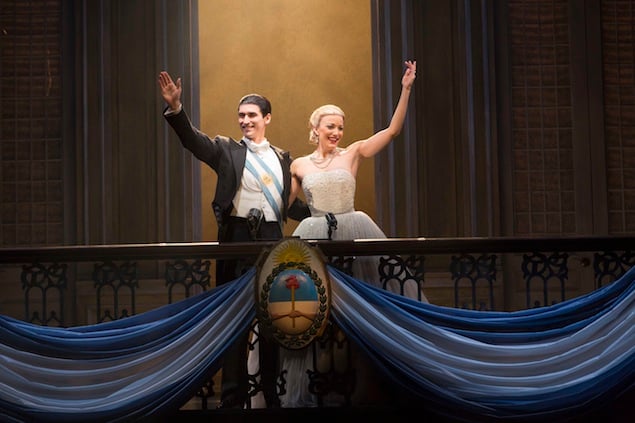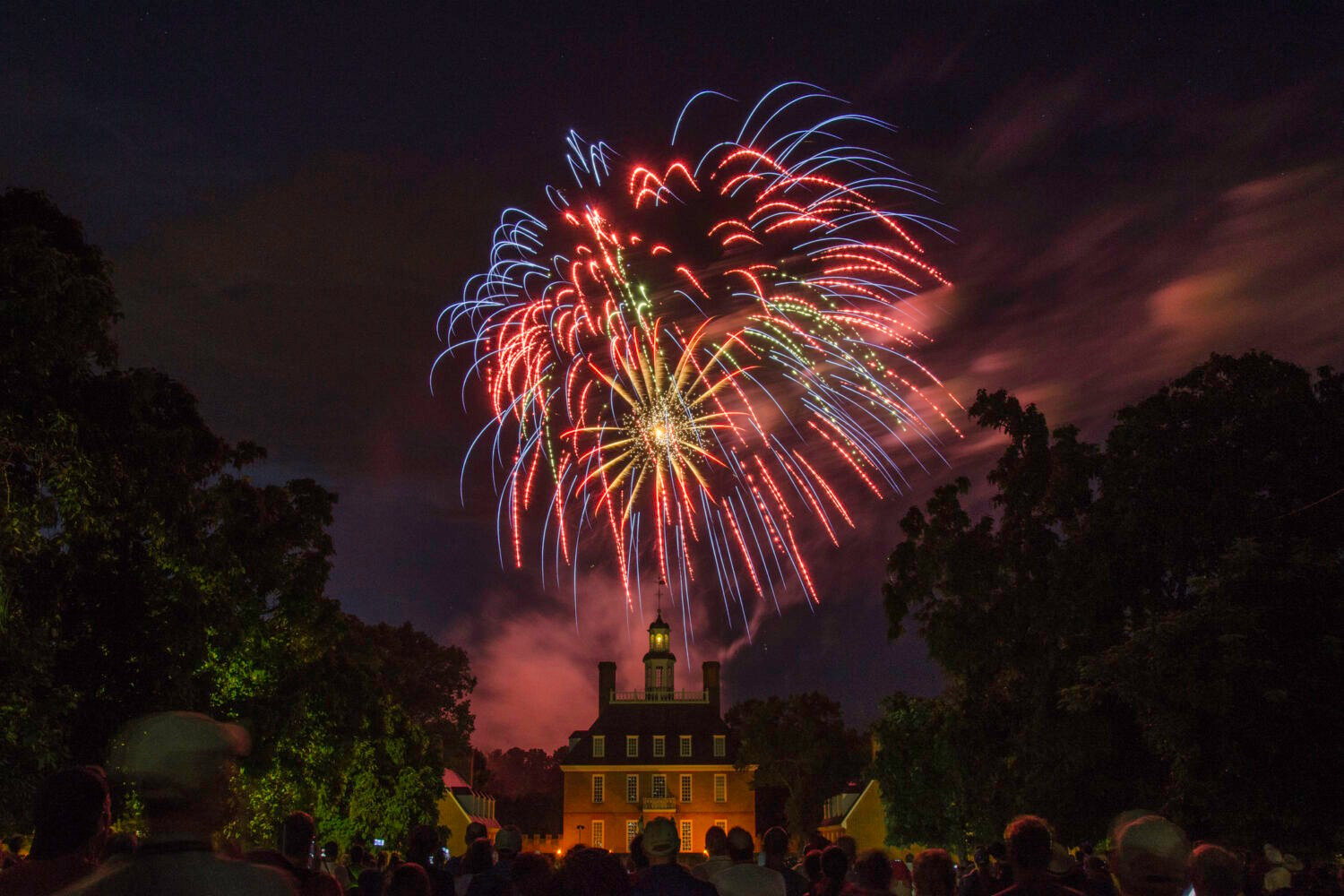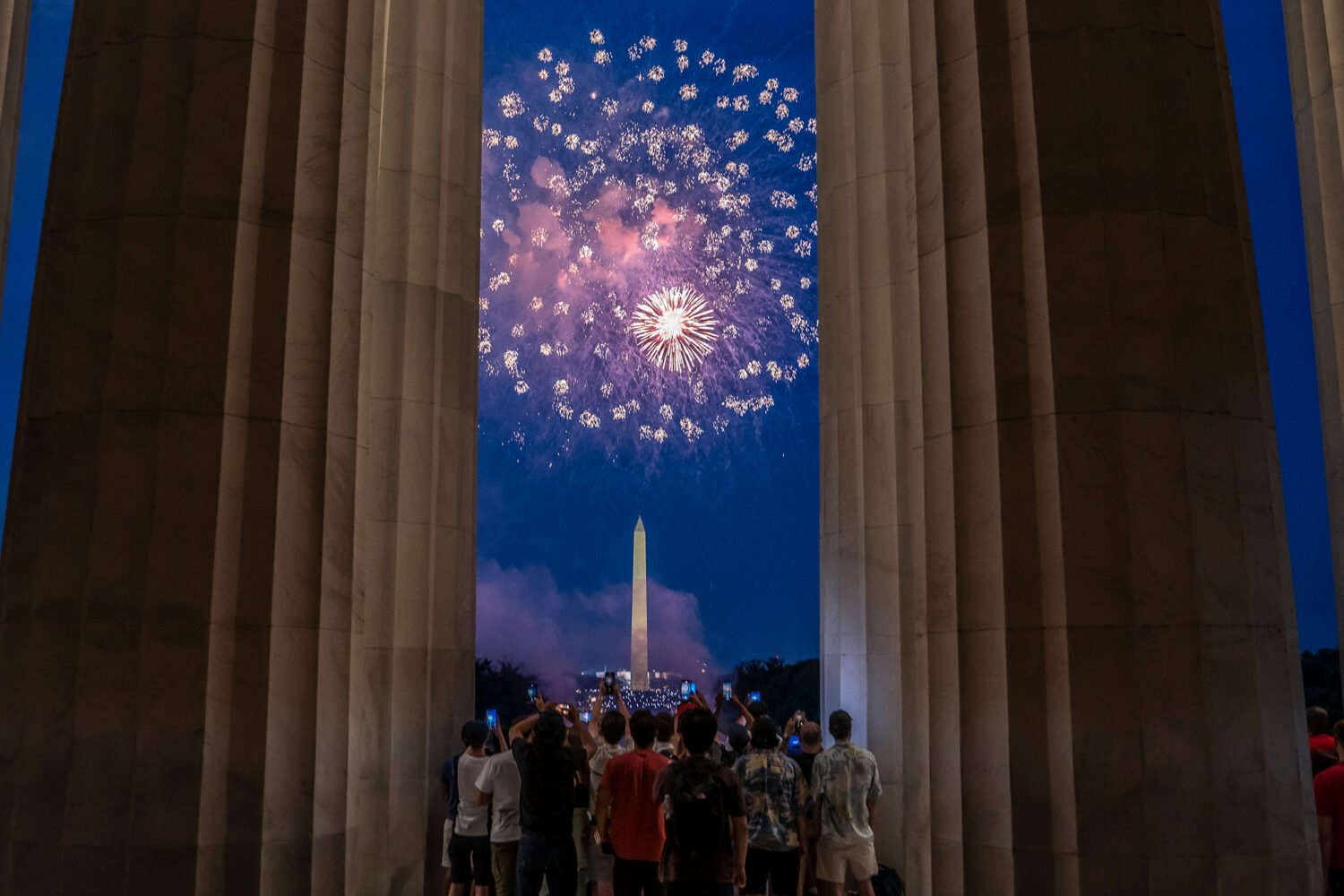A veteran theatergoer might experience a pang upon entering the Kennedy Center Opera House to catch the national tour of Evita. Stuck like cheesy appliqués onto a blue theater curtain are two enormous cutout headshots of the real Juan and Eva Perón. They are so tackily attached that the seams show. Such wear and tear is not uncommon with touring shows—Elf the Musical was a far worse example to land at the KenCen—but that initial image doesn’t inspire confidence.
Once the curtain rises, however, the production proves a handsome and well-sung affair, though rarely a transcendent or politically spiky one.
Che is the show’s singing narrator, a character intended to recall, at least a little, the legendary Argentine leftist radical Che Guevara. In this touring version of the 2012 Broadway revival, staged by British director Michael Grandage and choreographed by Rob Ashford, Che has been nearly depoliticized, bereft of his iconic beret. The weird mix of leftist and fascist policies used by the Perónists defies easy definition—which may be exactly what Andrew Lloyd Webber and lyricist Tim Rice wanted to say here. Making Che apolitical may make him more sympathetic, but it clarifies nothing.
The curtain rises on Eva Perón’s funeral in 1952. After that her life unfolds in flashbacks. A large screen taking up nearly two-thirds of the height of the Opera House stage shows newsreels of her actual funeral. Dwarfed by the screen, the show’s ensemble, dressed in mourning, sings a requiem. Projections, which are all the rage on stage these days, do add historic context here, but they go on so long. You wonder if you’re watching a documentary or a show. Eventually, though, the screen gives way to a set: an impressive enough neoclassical façade that stands in for the presidential palace and other buildings in Buenos Aires.
The new choreography by Ashford emphasizes the tango-y lilt in Webber’s score. This serves particularly well in “The Art of the Possible,” a number about military officers jockeying for power. The men move in a semi-comical blend of tango and French hurl-your-partner apache dancing. Clever stuff.
As Che, Max Quinlan sings in a pleasing light tenor, but his portrayal could use more bite. When he chides Evita for her hollow promises to the masses and her husband’s corruption, his words carry a touch of irony, but little outrage, which is surely the stuff of drama—even a fully sung musical drama.
Caroline Bowman as Evita, lovely in Christopher Oram’s Paris-inspired wardrobe, can shift from a supple soprano into a piercing belt as Evita’s power and Webber’s notes climb higher. The Howard County native plays the difficult, vocally challenging role with skill and precision, but doesn’t fully embody the charisma the real-life Evita purportedly had.
Two other lead performers stand out for the way they meld their characters’ gravitas and their music. Sean MacLaughlin as Perón carries himself ramrod straight, his lust for power and his fear of rivals forever tugging at him. His physical portrayal and his fine baritone lend Perón depth, as when he explains to Evita their crumbling political situation in “The Dice Are Rolling.” Christopher Johnstone, wedding a certain smarminess and a gorgeous tenor, oils his way through the role of the tango singer Magaldi, who brings country girl Eva Duarte to the big city.
The entire cast does better than decent justice to one of Webber’s best, subtlest and most strongly atmospheric scores—really, just one melody, which goes through many variations and periodically gels into “Don’t Cry for Me Argentina.” It’s used to powerful effect when Evita, in a glittering white strapless gown, addresses the masses after her husband’s election—a moment that remains electrifyingly theatrical.
When it comes to Rice’s lyrics, however, the ensemble, the orchestra, and the sound system too often leave an audience wondering what’s being said. Great poetry they are not, but Rice’s lyrics are smart, witty and often usefully explanatory, crucial in a totally sung show about a historical subject.
The bottom line: This Evita won’t change your life, but it will pleasantly divert your eyes and ears.
Evita is at the Kennedy Center Opera House through October 19. Running time is about two hours and 20 minutes, including an intermission. Tickets ($39 to $130) are available online.

















